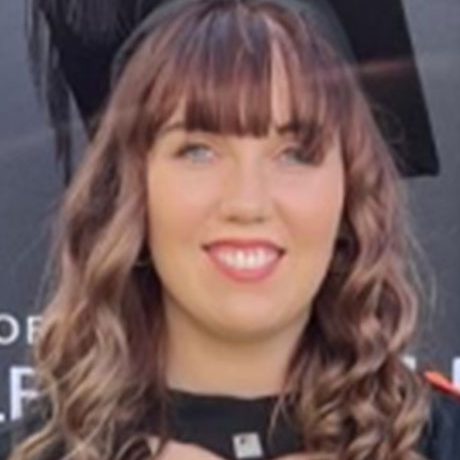What is a mental health nurse?
The role of a mental health nurse is quite complex and changes from organisation to organisation.
Generally speaking, a mental health nurse works with and supports consumers to manage their mental health, and any associated symptoms of mental illness. Mental health nurses provide care for consumers of all ages, from adolescents to adults and older people. Mental health nurses can work in a variety of settings such as inpatient wards, community teams, rehabilitation facilities, forensic settings and private hospitals.
Importantly, mental health nurses offer their time and presence, and are there to listen and to assist consumers in their journey with recovery. To achieve this, mental health nurses must build therapeutic relationships by utilising specialised communication skills to form connections and promote wellbeing. The approaches of recovery-orientated practice supports consumers to take responsibility for their own recovery and wellbeing.
Keeping a consumer-centred focus and advocating for consumers is a vital component of being a mental health nurse. They must also demonstrate kindness, empathy, patience and must have excellent communication and listening skills.
Mental health clinicians work within the framework of their state-specific Mental Health Act (for example NSW Mental Health Act 2007), a big part of which is the principle of Least Restrictive Care. In accordance with this principle, consumers who require care and treatment must be treated in the least restrictive setting that is safe and effective. Mental health nurses have their own Standards of Practice that must be adhered to in addition to the codes of conduct and code of ethics.
Being a mental health nurse is diverse and offers a myriad of career avenues and opportunities.
Being a mental health nurse can be both rewarding and challenging.
The day-to-day of a mental health nurse
I work in a high acuity inpatient unit, called a Mental Health Intensive Care Unit (MHICU) in a regional public hospital. Our MHICU is a concentrated unit with a small nurse-to-consumer ratio to support the intensive care needed.
Consumers in a MHICU have complex needs and may exhibit behaviour that can challenge nurses. Generally, consumers may stay anywhere from one night, to a few days, several weeks and in some rare cases, months. Consumers may have a variety of different mental health concerns, including having an established diagnosis of a mental illness or relapse, being acutely agitated or distressed, managing suicidal thoughts, or experiencing psychosis. MHICU consumers are, for the most part, there involuntarily which poses a challenge. Consumers may have been brought in by ambulance, police, community teams or referred by another facility or health district. Consumers can also present voluntarily.
Working in a MHICU, no one day is ever the same which can be quite enjoyable, and I often say that there is ‘never a dull moment.’
At the beginning of a day shift, we receive a comprehensive handover from the previous shift, review notes and greet our consumers. Soon after, nursing staff will then attend and supervise breakfast. Around this time, nurses will dispense and administer medications, attend physical observations, and assist their consumers with any activities of daily living, or other tasks they wish to do.
Every morning at a set time, each nurse will provide handover of their patients to the multi-disciplinary team. These teams include psychiatrists, registrars, junior medical officers, social workers, occupational therapists, the nurse unit manager and the cultural care navigator. During this discussion, plans and tasks are set and are followed up by nursing staff. Psychiatrists will then review each patient over the course of the day with the allocated nurse attending their reviews.
There is a morning meeting for all the consumers to discuss what is happening on the ward, answer any questions and provide opportunities for consumers to think about any activities they would like to do that day.
For the rest of the day, nursing staff may need to assist with organising for a consumer to be discharged, liaise a transfer to a less acute environment, receive an admission, facilitate phone calls and visits with loved ones, make various referrals, attend scans, and complete documentation.
Nursing staff might also have to utilise de-escalation skills when needed. Consumers may sometimes require a low-stimulus environment as the ward can often be loud, noisy and triggering. In MHICU, we have two seclusion rooms and a seclusion lounge area that can be utilised to support the reduction of stimulus activity that is triggering the consumer. Restrictive practices such as sedation, restraint and seclusion are used as a last resort and ONLY if a person is at risk of harming others or themselves. Mental health clinicians uphold the principles of trauma-informed care to reduce re-traumatisation.
The majority of the day is really spending time with your consumers, getting to know them on a personal basis, finding out what’s happening for them and what they are experiencing, and doing a comprehensive mental state examination. A lot of our time is usually spent engaging at length with consumers and providing a range of therapeutic interventions, including sensory items. We engage with our consumers by playing card games, kicking soccer balls in the courtyard, watching movies, doing arts and crafts, and many more activities. Creating a therapeutic relationship with consumers and connecting on a meaningful basis is paramount as a mental health nurse and is at the core of what we do.
The end of the day Is usually spent attending the consumers’ lunch, providing handover to the next shift, and engaging with consumers.
Mental health nurses are compassionate, warm, and empathetic individuals, and we often use humour when liaising with consumers. There are difficult moments, situations and conversations that occur but ultimately seeing a consumer improve, be discharged home or be transferred to an open ward to continue their journey towards recovery is immensely rewarding.
If you’re feeling inspired to learn more about mental health nursing, check out ACN’s comprehensive online module, Mental Health Nursing. This four-hour CPD course offers a deep dive into crucial areas such as conducting a suicide risk assessment, identifying psychosis and choosing appropriate strategies for managing difficult behaviours. Enhance your skills and confidence in mental health nursing with this specialised learning opportunity.
By Emily Newton MACN
Emily is a Clinical Nurse Specialist who has worked in a Mental Health Intensive Care Unit (MHICU) for the past six years and has recently completed her Masters of Mental Health Nursing with Distinction. Being a Safe Care Prevention and Management of Violence and Aggression (PMVA) trainer, Emily is passionate about reducing violence and aggression and promoting the importance of clinical supervision. Emily is an alumna of ACN’s prestigious Emerging Nurse Leader (ENL) program.






